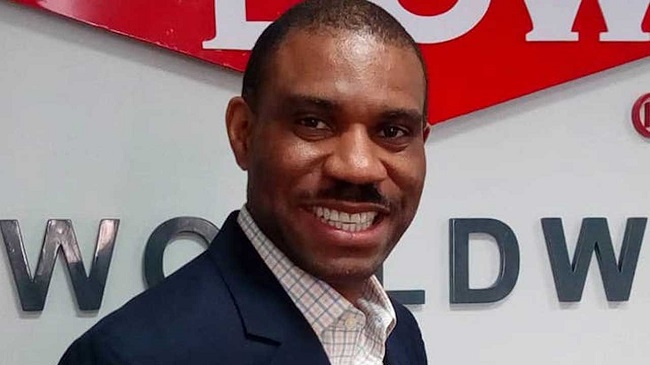Managing Director of Dow West Africa, Mr Edosa Obayagbona, on Friday, December 11, 2020 urged the Federal and State Governments to adopt circular economy aimed at recycling non degradable waste to create employment and healthier environment.

Obayagbona made the call during an online forum tagged “Circular Economy in Plastic Waste Management”, organised by the Lagos Business School (LBS) Sustainability Centre.
He said that plastics were valuable and resourceful products that could be recycled and reused into new materials rather than being disposed indiscriminately or go into waste to pollute the environment.
“Combating the menace of plastic waste pollution such as plastic bottles, cans and water satchet, has become a huge environmental challenge in Nigeria.
“Our streets, landfills, beaches and oceans are testament to its far-reaching effects. This is because, we as a people, have always had the use and dispose mentality about plastics.
“But with the right action, we can turn the tide by adopting what is called the ‘Circular Economy’, where every manufactured plastics is recycled, treated and reused into used or new materials without being wasted.
“This circular economy is obtained in the US, UK and India. We can do the same in Nigeria if our government makes policies towards this direction with the private sector providing funding and the technology,” he said.
Obayagbona said that applying a circular economy concept required infrastructure such as plastics collection, sorting and recycling centres.
He said that establishing such centres would create employment, earning power and a healthier, greener environment free of plastic wastes.
According to him, the first step is to educate the people to start viewing plastic as a valuable resource and a business venture instead of waste.
Obayagbona said: “With a public-private partnership, a buy-back centre can be opened where people can bring their plastic wastes and get paid.
“Also, waste management companies and manager or entrepreneurs should be innovative on what can be done with the collected plastics. They could work with scientists and researchers.
“These plastics could be recycled to make bricks for road or building construction, clothing, tables, chairs, plastic cement and arts. And composite materials developed from recycling plastic wastes are usually more durable and cheap.
“Plastic does not belong to the environment, it is meant to be reused over and over again. We need governments to prioritise and make policies along this direction.
“It is recommended strongly that governments, individuals and corporate bodies take advantage of the outlined merits of plastic recycling.”
In her remarks, Dr Edun Okupe, a researcher at the Lagos Business School, said that plastic waste management was a collective responsibility of the people, the government, the manufacturers and the end users.
“We need to reimagine, recycle, reuse, reduce, regenerate and rethink plastics to protect our environment,” she said.
By Lucy Osuizigbo-Okechukwu
